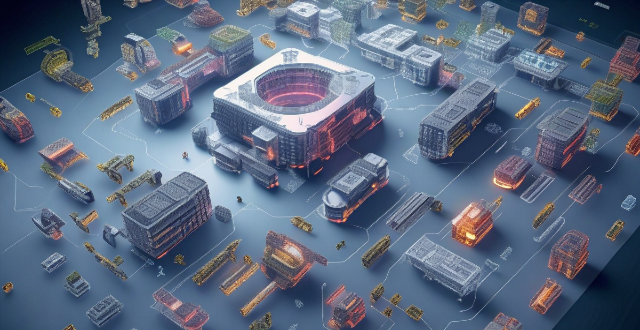The article discusses the role of robotics and artificial intelligence (AI) in future interstellar missions. The key areas where these technologies will make a difference include autonomous navigation and control, maintenance and repair, scientific research and data collection, and colony establishment and management. However, there are challenges to consider such as reliability, security, and ethical considerations. Overall, robotics and AI will play an integral role in overcoming the immense challenges of traveling to distant stars.

The Role of Robotics and Artificial Intelligence in Future Interstellar Missions
Introduction
As humanity looks to the stars for future exploration, robotics and artificial intelligence (AI) will play a crucial role in making interstellar missions possible. These technologies will enable us to overcome the challenges of long-distance space travel and help us achieve our goals of exploring and potentially colonizing other star systems.
Key Areas Where Robotics and AI Will Make a Difference
Autonomous Navigation and Control
One of the most significant benefits of robotics and AI is their ability to operate autonomously. In an interstellar mission, where communication delays can be years or even decades long, having autonomous systems that can make decisions and adjust course without human intervention is essential. This includes:
- Pathfinding: AI can calculate the most efficient route to a destination, taking into account factors like fuel consumption, radiation exposure, and potential hazards.
- Course correction: Robotics can adjust the trajectory of a spacecraft to ensure it stays on track, compensating for any deviations caused by external forces like solar winds or gravitational pull from nearby objects.
Maintenance and Repair
In the vastness of space, maintaining and repairing a spacecraft is a complex task that often requires specialized tools and expertise. Robotics and AI can assist in this area by:
- Inspection drones: Small, intelligent drones could be dispatched to inspect the exterior of a spacecraft for damage or wear and tear.
- Automated repair systems: Robotic arms equipped with sensors and cameras could perform routine maintenance tasks or even conduct repairs when necessary.
Scientific Research and Data Collection
Scientific research is a primary objective of interstellar missions. Robotics and AI can enhance our ability to gather data and conduct experiments by:
- Autonomous experimentation: AI can design and execute experiments based on predefined parameters, adjusting them as needed to optimize results.
- Data analysis: Machine learning algorithms can process vast amounts of data collected during the mission, identifying patterns and insights that might not be immediately apparent to human researchers.
Colony Establishment and Management
If we ever reach the point of establishing colonies on distant planets, robotics and AI will be instrumental in setting up and maintaining these settlements:
- Construction bots: Robotic construction vehicles could build habitats, install infrastructure, and prepare the environment for human habitation.
- Resource management: AI systems could monitor resources like water, food, and energy, ensuring they are used efficiently and replenished as needed.
Challenges and Considerations
While robotics and AI offer numerous advantages for interstellar missions, there are also challenges to consider:
- Reliability: Ensuring that autonomous systems remain reliable over long periods without human intervention is paramount.
- Security: As AI becomes more integrated into critical systems, safeguarding against hacking or unauthorized access becomes increasingly important.
- Ethical considerations: The use of AI raises ethical questions about decision-making authority and responsibility, especially when lives are at stake.
Conclusion
Robotics and artificial intelligence are set to play an integral role in future interstellar missions. From autonomous navigation to scientific research and colony establishment, these technologies will help us overcome the immense challenges of traveling to distant stars. However, as we rely more heavily on these systems, we must also address the challenges and ethical considerations that come with their use.